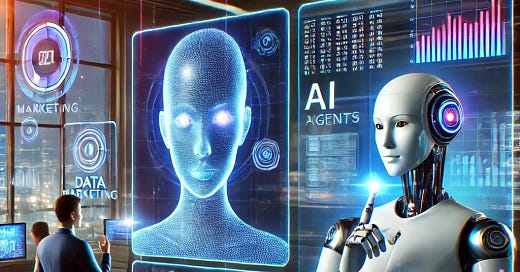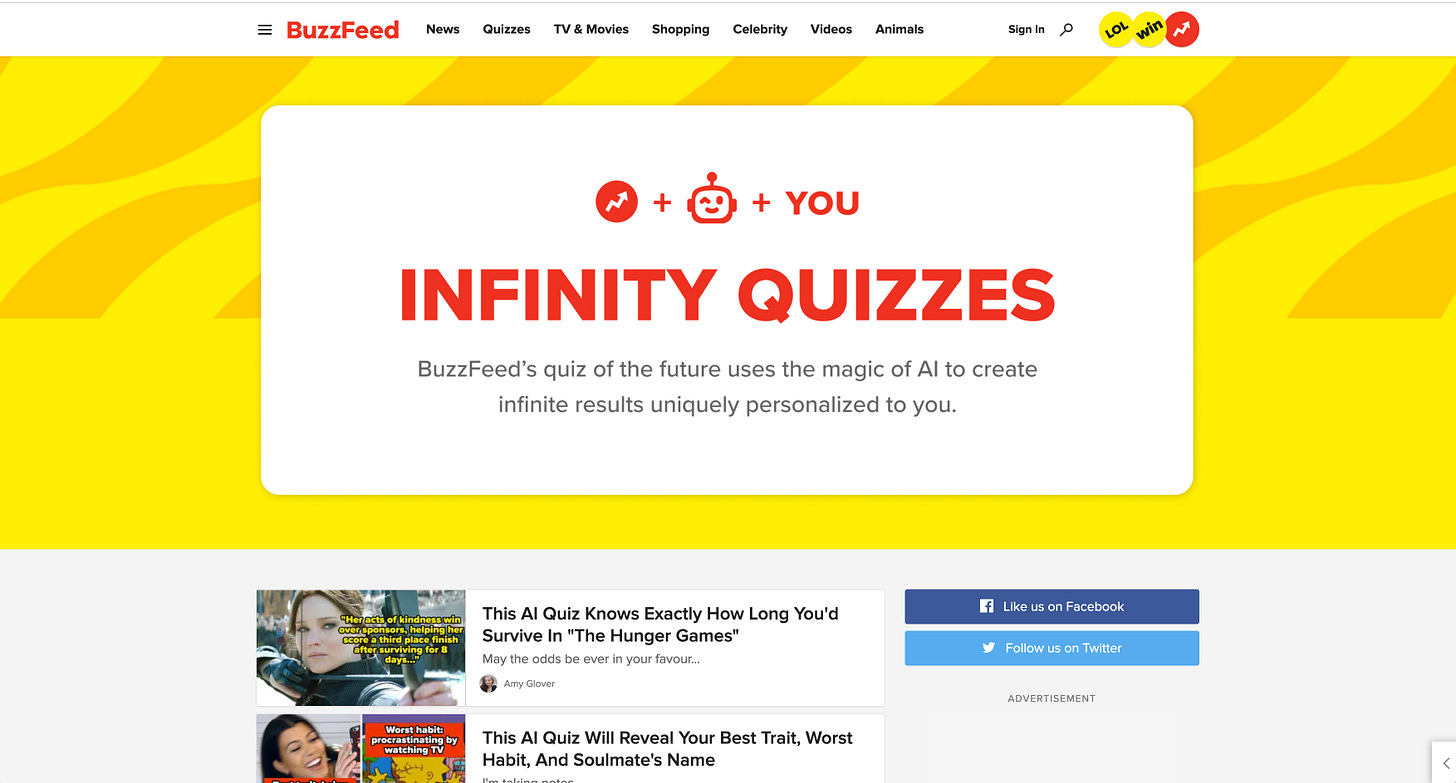The Rise of AI Marketing Agents
As AI marketing agents become more prevalent, marketers cannot overlook the ethical implications of their use.
AI agents are rapidly becoming an indispensable part of marketing. These sophisticated systems can engage with customers, analyze data, and personalize marketing efforts with a level of efficiency that human agents can’t match.
However, as AI marketing agents become more prevalent, marketers cannot overlook the ethical implications of their use.
Understanding AI Marketing Agents
AI marketing agents are software programs that use artificial intelligence to perform marketing tasks. They can range from chatbots that provide customer service to algorithms that analyze consumer data and recommend products.
Here are three examples:
BuzzFeed
BuzzFeed leveraged AI to personalize quiz content, significantly boosting user engagement. Using tools from OpenAI, BuzzFeed tailored quizzes based on user responses, creating a more engaging and personalized experience. The campaign enhanced user satisfaction and set a new benchmark in AI-driven content personalization.
Starbucks
Starbucks utilized AI to develop "Deep Brew," an AI agent that predicts customer orders based on past behavior, time of day, location, and weather conditions. This personalized approach resulted in higher customer engagement and loyalty. The system's ability to anticipate customer needs before they voiced them demonstrated the powerful impact of predictive AI in enhancing customer experience.
Sephora
Sephora implemented a chatbot called the Sephora Virtual Artist, which uses facial recognition technology to provide personalized makeup recommendations.
This AI agent lets customers try different makeup products virtually, improving customer satisfaction and driving sales. The Virtual Artist has significantly reduced support inquiries by mimicking the experience of interacting with a human sales associate.
The benefits of AI agents are clear: increased efficiency, scalability, and enhanced customer experiences. Yet, we must consider the ethical implications as we delegate more marketing functions to AI.
Ethical Considerations in AI Agent Marketing
Transparency is paramount. Customers have the right to know when they are interacting with an AI agent. This fosters trust and helps prevent potential backlash if they feel deceived.
Privacy is another major concern. AI agents often require vast amounts of data to function effectively, raising questions about how this data is collected, stored, and used.
Bias and fairness are critical issues as well. AI systems can unintentionally perpetuate existing biases if trained on biased data. Ensuring that AI marketing agents make fair decisions requires careful consideration of the data and algorithm design.
Accountability is also crucial. Companies must be ready to take responsibility for the actions of their AI agents and address any ethical lapses promptly.
Best Practices for Ethical AI Agent Marketing
Ethical design is the foundation of responsible AI use. This includes prioritizing fairness, accountability, and transparency from the outset.
Regular audits of AI systems are necessary to detect and address biases or other ethical issues. Clear policies and guidelines should be established to ensure that AI use aligns with broader ethical standards and regulations.
Finally, human oversight is essential. While AI agents can automate many tasks, human judgment is necessary to maintain ethical standards.
Conclusion
As AI marketing agents evolve, so must our approach to their ethical implications. We can harness AI's power while prioritizing transparency, privacy, fairness, and accountability and maintaining our customers' trust and respect.
The future of AI in marketing is bright, but a commitment to ethical practices must guide it.
Leave a comment and share your thoughts about AI agents. We would love to hear from you.
Like what you read here? Share the newsletter with your friends and colleagues. Don’t like what you read? Let us know.








